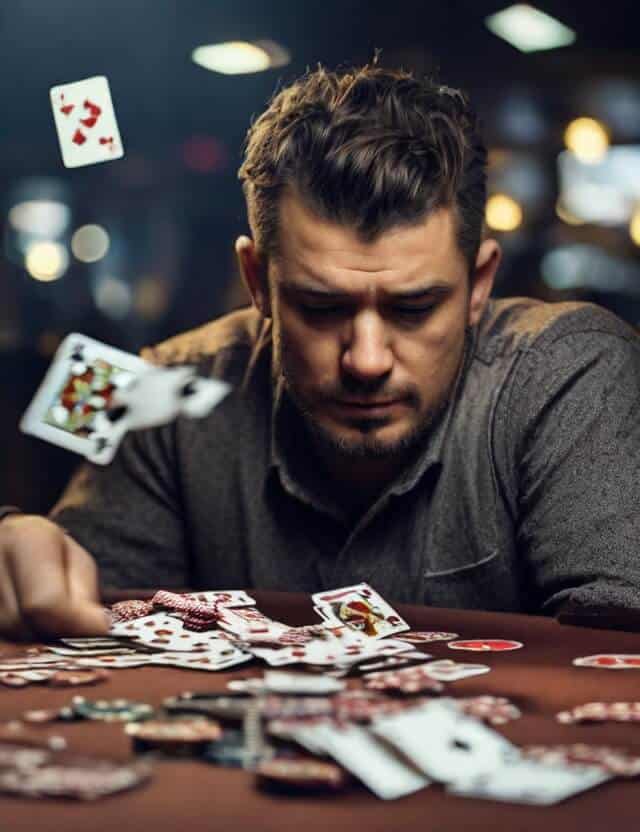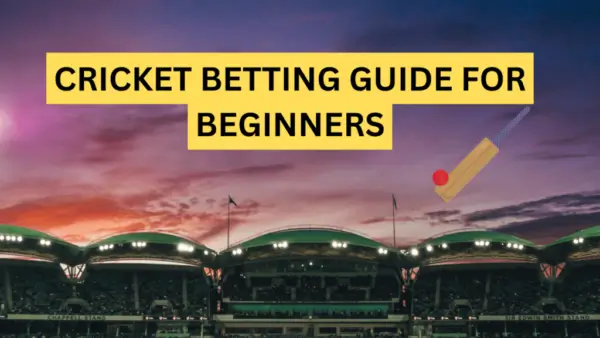Gambling, a widely practiced activity globally, offers an array of experiences, from the thrill of chance to the strategic play. However, for some, what begins as entertainment can spiral into an uncontrollable compulsion.
In this detailed exploration, we delve into the multifaceted world of gambling addiction, covering its various aspects and providing insights into its prevention and treatment.

Table of Contents
What is Gambling?
Gambling is the art of taking chances, a captivating dance between risk and reward. It’s the thrill of testing fate, whether with a roll of the dice, a strategic card play, or the spin of a wheel, all while hoping luck decides to be a loyal partner in this exhilarating game of chance.
Gambling takes numerous forms, each presenting its unique allure. From traditional casino games to online betting platforms, the diversity in gambling options caters to a wide audience:
- Casino Gambling: High-stakes games, roulette, and card games in brick-and-mortar establishments.
- Online Gambling: The convenience of betting from home, ranging from online casinos to sports betting.
- Poker Rooms: Strategic card games where skill meets chance.
- Lotteries and Scratch Cards: Quick, chance-based games with the potential for significant wins.
- Slot Machines: Iconic symbols of casinos, offering an instant thrill with every spin.
Types of Gambling
The world of gambling is vast and varied, encompassing a range of activities. Understanding these types is essential to grasp the scope of the issue:
- Casino Gambling: Involves games of chance and skill, often with high stakes.
- Sports Betting: Wagering on the outcome of sporting events.
- Poker: A strategic card game that combines skill and luck.
- Online Gambling: Accessible through various digital platforms, offering diverse options.
- Lotteries: Games of chance with the potential for significant cash prizes.
Recognizing Gambling Addiction: Signs & Symptoms
Identifying the signs of gambling addiction or problem gambling is crucial for early intervention. The following signs may indicate a developing problem:
- Preoccupation with Gambling: Constant thoughts about gambling and planning the next session.
- Inability to Stop: Persistent gambling despite negative consequences.
- Neglecting Responsibilities: Prioritizing gambling over work, family, or other obligations.
- Chasing Losses: Attempting to recover lost money through more gambling.
- Lying About Gambling Activities: Concealing the extent of gambling from loved ones.
Self-Help for Gambling Problems
For those acknowledging a gambling issue, self-help strategies can be a valuable starting point:
- Setting Financial Limits: Establishing strict budgets for gambling activities.
- Avoiding Triggers: Identifying and steering clear of situations that prompt gambling urges.
- Finding Alternatives: Engaging in alternative activities to replace the thrill of gambling.
- Seeking Support: Connecting with friends, family, or support groups for encouragement.
How to Stop Gambling: Taking Control of the Situation
Stopping gambling requires a proactive approach. Consider the following steps:
- Creating a Plan: Develop a comprehensive plan to manage cravings and avoid triggers.
- Avoiding Gambling Environments: Stay away from places associated with gambling activities.
- Professional Help: Seek assistance from therapists or counselors specializing in addiction.
Gambling Addiction Treatments: A Multifaceted Approach
Treating gambling addiction involves a combination of therapeutic modalities and support systems:
Addressing gambling problems varies from person to person, with some managing to halt their habits independently while others require assistance. Surprisingly, only one in ten individuals with gambling disorder actively seeks professional treatment.
The impact of gambling is diverse, necessitating varied approaches for resolution. Therapeutic interventions, including cognitive behavioral therapy (CBT), psychodynamic therapy, group therapy, and family therapy, prove effective in treating gambling disorders.
Counseling plays a pivotal role in helping individuals comprehend the impact of gambling on themselves and their families, offering insights into potential solutions.
Support from family and friends is invaluable, yet the decision to cease gambling ultimately rests with the individual. Recognizing the need for intervention and exploring diverse therapeutic avenues can significantly contribute to a person’s journey to recovery.
Do’s and Don’ts for Partners, Family, and Friends
Support from loved ones is invaluable, but it must be approached with care. Consider these do’s and don’ts:
Do’s:
- Encourage Open Communication: Create an environment where the individual feels comfortable discussing their struggles.
- Educate Yourself: Learn about gambling addiction to better understand the challenges your loved one is facing.
- Assist in Finding Treatment: Help research and locate appropriate treatment options.
Don’ts:
- Enable the Behavior: Avoid participating in or facilitating the individual’s gambling activities.
- Place Blame: Rather than blaming, focus on understanding and supporting their journey.
Understanding Compulsive Gambling or Gambling Disorder
Compulsive gambling, recognized as a mental health disorder, is characterized by:
- Loss of Control: Inability to resist the urge to gamble.
- Negative Consequences: Continued gambling despite negative impacts on one’s life.
- Escalation Over Time: Increasing preoccupation with gambling as the disorder progresses.
Causes, Risk Factors, and Complications
Exploring the factors contributing to gambling addiction provides insights into its complexity:
- Psychological Factors: Underlying mental health issues may contribute.
- Genetics: A family history of addiction can increase susceptibility.
- Environmental Influences: Exposure to gambling at an early age or in one’s environment.
Complications of gambling addiction may include:
- Financial Problems: Poor work performance, Accumulating debts and financial instability.
- Strained Relationships: Tensions with family and friends due to neglect and deceit.
- Mental Health Decline: Increased anxiety, depression, or other mental health issues.
Prevention: Nipping the Problem in the Bud
Preventing gambling addiction involves a proactive, community-based approach:
- Early Education: Teaching about responsible gambling from a young age.
- Promoting Responsible Behavior: Encouraging self-awareness and setting limits.
- Creating a Supportive Environment: Fostering open discussions about gambling and its potential risks.
Gambling in Recovery
Recovery from gambling addiction is an ongoing process:
- Embracing a Healthy Lifestyle: Incorporating physical activity, proper nutrition, and regular sleep.
- Participating in Counseling: Continued therapy to address underlying issues.
- Staying Connected: Maintaining connections with support networks for ongoing encouragement.
Gambling Addiction Helplines
National Helplines
- SAMHSA National Helpline: 1-800-662-HELP (4357) – Provides 24/7 confidential information and support for mental health and substance abuse treatment services. They can connect you with resources for gaming addiction, gambling addiction, and other behavioral health concerns.
- NYS Office of Alcoholism and Drug Abuse Services (OASAS) HopeLine: 1-800-532-4292 – Available 24/7, offering confidential information and referrals to substance abuse treatment and prevention services in New York State. They can connect you with resources in other states too, but their primary focus is on New York.
- Crisis Text Line: Text HOME to 741741 – Connects you with a crisis counselor via text message, even if you don’t have a phone plan. They can offer support and help you find resources for a variety of issues, including gaming addiction.
Support Teams
- Online Gamers Anonymous (OGA): A 12-step support group specifically for people struggling with video game addiction. They offer online meetings, forums, and other resources.
- Game Quitters: A website and online community offering support and resources for people struggling with all types of digital and gaming addictions. They have forums, blog posts, podcasts, and even a paid coaching program.
- Internet Addiction Recovery: An organization offering resources and support for people struggling with various types of internet addiction, including gaming addiction. They have online meetings, therapy groups, and a family support program.
- National Council on Problem Gambling (NCPG): While primarily focused on gambling addiction, NCPG also offers resources and information for problematic video game use. They have a helpline (1-800-522-4700), online chat, and directory of treatment providers nationwide.
Additional Resources
- American Psychological Association (APA): Provides information on video game addiction and other internet-related addictions, including signs and symptoms, treatment options, and resources.
- American Academy of Child and Adolescent Psychiatry (AACAP): Offers tips and advice for parents concerned about their child’s video game use or any other problematic internet use.
- The Jed Foundation: Offers mental health resources and support for teens and young adults, including resources for problematic internet use and gaming addiction.
Conclusion
This comprehensive exploration of gambling addiction aims to shed light on its various facets. Recognizing the signs, understanding the types of gambling, and implementing preventive measures are crucial steps in addressing this growing concern. Break the myths about gambling and have a clear image of it and free yourself from its captivity.
- Top 5 Crypto Gainers Today – Jul 12, 2025
- Top 5 Crypto Gainers Today – Jul 11, 2025
- Top 5 Crypto Gainers Today – Jul 10, 2025
- Top 5 Crypto Gainers Today – Jul 09, 2025
- Top 5 Crypto Gainers Today – Jul 08, 2025

Prasanth is an experienced crypto trader and writer with 5 years of expertise in blockchain technology, cryptocurrency markets, and trading strategies. He specializes in creating insightful, easy-to-understand content that helps readers stay informed about the latest trends, investment opportunities, and security best practices in the crypto space. With a deep passion for digital assets and a commitment to providing valuable, trustworthy information, Prasanth empowers both beginners and experienced traders to make informed decisions in the fast-evolving world of cryptocurrency.


